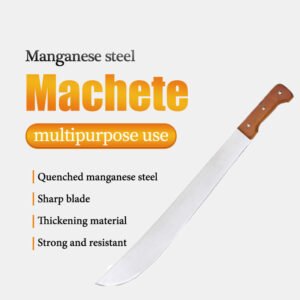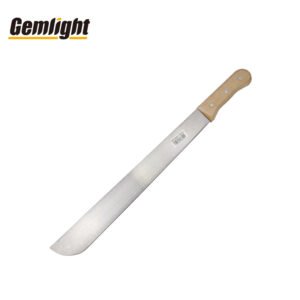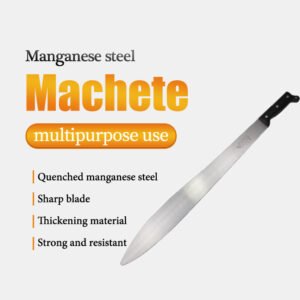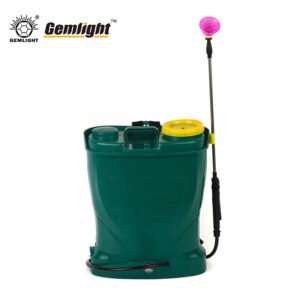1. Rediscovering the Vintage Machete in African Outdoor Culture
Across many African nations, the machete is more than just a tool—it is a cultural symbol deeply tied to tradition, survival, and rural livelihood. Among the many styles available today, the vintage machete holds a special place in the hearts of outdoor workers, agricultural professionals, and bushcraft enthusiasts. These classic blades reflect decades of practical refinement, adapted to the unique environmental challenges of the continent.
Historically, African communities relied on large, durable machetes to clear brush, prepare land for farming, and harvest crops such as sugarcane or maize. With time, the form and function of these machetes evolved, but vintage-style blades—defined by their forged steel, weathered patinas, and wooden or wrapped handles—continue to embody rugged reliability.
Today, there is renewed interest in vintage machetes as both collectible items and practical tools. Their enduring presence in African rural life speaks to their proven utility and trusted craftsmanship. From the narrow paths of Uganda’s banana plantations to the bushlands of Ghana and the wetlands of Nigeria, machetes are preferred for their heft, balance, and heritage.
Moreover, the aesthetic of the vintage machete adds value beyond function. African artisans and tradesmen appreciate the forged look, aged finishes, and curved edges that set these machetes apart from factory-polished, mass-market alternatives. For many, owning a vintage-style machete is a nod to tradition—one that blends pride in the past with confidence in the present.

2. Why the Vintage Bolo Machete Fits African Terrain Work
The vintage bolo machete is particularly suited to the diverse and challenging terrains found throughout Africa. Its thick, forward-weighted blade design delivers power with each swing, making it ideal for clearing dense vegetation, splitting thick stems, or managing fieldwork under tough rural conditions.
In regions like central Kenya and southern Malawi, where sugarcane and banana plantations are widespread, bolo machetes are commonly used for both planting and harvesting. The vintage bolo design—distinguished by its rounded, broad tip—adds significant momentum during chopping motions. This makes it highly effective for repetitive tasks in hot climates, where labor efficiency is crucial.
One of the key advantages of vintage bolo machetes is their durability. Compared to thinner machetes, bolo types can handle woodier plants, thorny brush, and hardened stalks without chipping or cracking. The vintage models, often forged from high-carbon or spring steel, offer extra strength and a longer lifespan—especially when maintained properly.
In bush environments, where quick access to a powerful tool can mean the difference between safety and exposure, bolo machetes are favored by hunters, trekkers, and survivalists. Their broad blades can also be used for food preparation, shelter construction, and even defense if needed. The versatility of a vintage machete makes it a reliable all-in-one tool for outdoor professionals across Africa.
Finally, there’s the legacy factor. Vintage machetes carry a story—many have origins tracing back to colonial trade routes or early 20th-century exports. This blend of utility and heritage makes them especially valued by both rural users and modern collectors seeking authenticity in design and performance.

3. Vintage Machete for Sale – Factory Direct Supply for Africa
For distributors, retailers, and NGOs operating in the African outdoor tool market, sourcing high-quality vintage machete for sale options can be a challenge. Our factory bridges that gap with a reliable supply chain, customized production lines, and deep experience in machete manufacturing tailored to African needs.
As a specialized manufacturer of machetes and agricultural tools, we offer a complete range of vintage-style machetes, including bolo machetes, Panga machetes, Latin-style machetes, and more. Each piece is crafted using heat-treated carbon steel, ergonomic handle construction (wood, plastic, or wrapped grip), and finished to emulate the rustic character of classic blades—making them ideal for rugged field use and commercial resale.
We understand that African buyers often value not only strength but also tradition. That’s why we offer OEM & ODM services, enabling clients to customize blade length, handle shape, weight distribution, or even engrave logos that reflect local branding or cultural motifs. Whether for mass procurement or boutique offerings, we scale production to meet volume and quality expectations.
Our machetes have been shipped to clients in Kenya, Nigeria, Ghana, Tanzania, and beyond—earning trust through consistent performance and durability. With factory-direct pricing and shipping coordination from China, we help African partners reduce procurement costs while improving access to dependable field tools.
For those seeking vintage machete for sale with authentic styling, long-term resilience, and excellent value, our factory stands as a proven supplier. We welcome distributors, wholesalers, government tenders, and large NGOs to collaborate with us for tailored solutions suited to both agricultural and outdoor industries.

4. The Enduring Appeal of the Vintage El Salvador Machete in Africa
Among collectors and field users alike, the vintage El Salvador machete holds a unique reputation. Though originally crafted in Central America, these machetes have long found favor in African markets due to their superb craftsmanship, distinctive styling, and field-tested performance. Their reputation as tough, enduring tools resonates strongly with African outdoor professionals and farmers.
The El Salvador machete is often recognized by its long, slightly curved blade, full tang construction, and rustic wooden handle. Vintage models in particular carry the marks of time—aging steel, traditional branding, and natural grip textures that add character and authenticity. In African markets, these machetes are often seen as premium tools, sought after for both functional use and heritage value.
Farmers in East Africa, for example, frequently choose vintage El Salvador machetes for brush clearing and livestock enclosure maintenance. The billhook machete’s flexibility and edge retention make it suitable for repeated daily use, while its long blade allows it to double as a cane knife or slasher when needed.
Outdoor retailers also note growing interest from younger professionals, bushcraft communities, and collectors who admire the balance between tradition and utility. Owning a vintage El Salvador machete is seen not just as a practical choice—but as a statement of rugged individualism and appreciation for craftsmanship.
Whether imported directly or replicated in vintage styling, the El Salvador machete continues to inspire loyalty in Africa’s toughest working conditions. It is a tool built for purpose, admired for resilience, and trusted by generations of users in the field.




